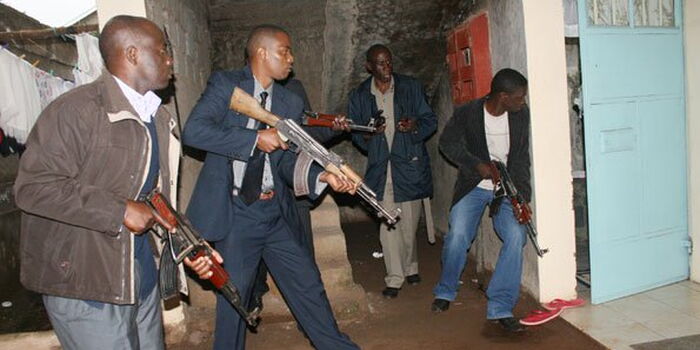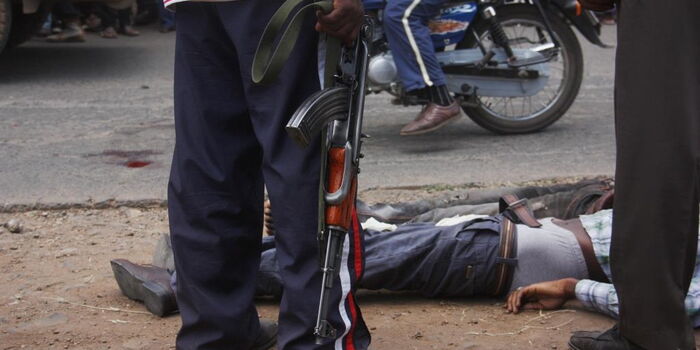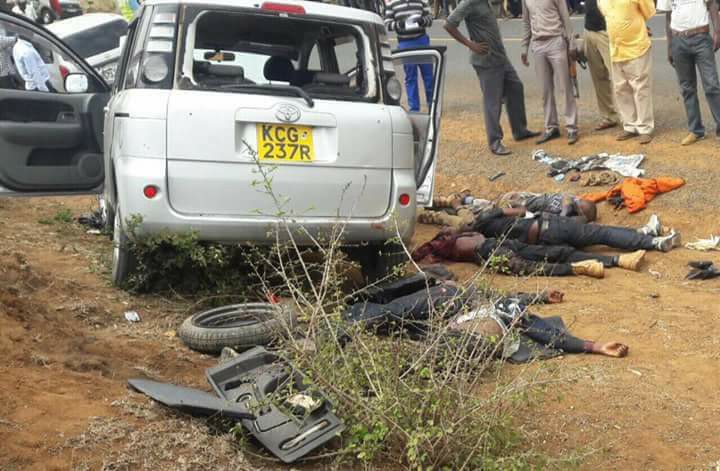
Ever since he walked into the Kiambu Road headquarters of the Directorate of Criminal Investigations on January 8, 2018 to become the country’s top detective, Mr Kinoti’s no-nonsense approach to his duties has been epic. He has a history of taking winding and dangerous trails across the country, and has been shot for that; not once, but twice.
A cyst at the back of his head is one of the reminders of the day he once met his would-be-assassins, who cracked part of his skull with a bullet, leaving him for dead in Homa Bay.
“I thought I would die,” he says.

The second attempt on his life was when he was investigating the brutal attack on novelist Ngugi wa Thiong’o and his wife Njeeri shortly after the US-based writer arrived in the country in August 2004 after 22 years in self-exile.
He was deep in the Prof Thiong’o investigations when he was sprayed with bullets by a murderous gang that left him in a coma. Those who saw him at the Armed Forces Memorial Hospital in Nairobi thought he wouldn’t survive. But he did, albeit with plates on his legs.
“I had been threatened because of that case and I raised the matter during the trial. But, somehow, even the media ignored the issue,” he says.
For his second stint at the Kiambu Road address — he had served there for 12 years earlier — his major challenge was how to reform an institution that had become synonymous with crime, corruption, and general lack of morale.

But it was the Flying Squad that shocked him. For years, the quick response unit had styled itself as the panacea for all crime and was believed to be the answer to organised crime. It wasn’t, and Mr Kinoti didn’t waste time dealing with the unit.
“I realised that the Flying Squad was the source of the problem and I had to dismantle it,” he says. He not only recalled and disarmed the 500 or so officers in the field, but also ordered all of them back to the headquarters.
“They were extortionists and some were collaborating with criminals,” he explains, but the rot within the police, under which the DCI operates, was far much deeper and dangerous than the criminal Flying Squad officers in the field.
In Kiambu, for instance, Mr Kinoti found that a police armoury was being used to rent firearms to criminals. He arrested a senior sergeant who was behind the scandal and recovered all the guns rented out to criminals.

But some Flying Squad members tried to rescue one of the officers he had arrested in connection with the gun renting scandal by corrupting his charge sheet.
“They charged him with a flimsy matter in order to secure his freedom. I had to arrest and charge him personally,” says Mr Kinoti.
When he dismantled the Flying Squad, everyone thought that the level of crime in the country would surge. But, to everyone’s surprise, the highway robberies from Mombasa to Busia stopped overnight.

The unit had been established in 1995 following an increase in carjackings and armed robberies in Nairobi, and at first consisted of a few officers based in Parklands, Nairobi. It was later expanded, with a headquarters next to Pangani Police Station in Nairobi and a base in Makuyu, Murang’a.
The emergence of smaller independent units all over the country sent the squad down the road to disaster as the dreaded officers went rogue and starting extorting bribes from civilians and crime suspects.
They were also blamed by human rights groups for increased extrajudicial killings of suspects.